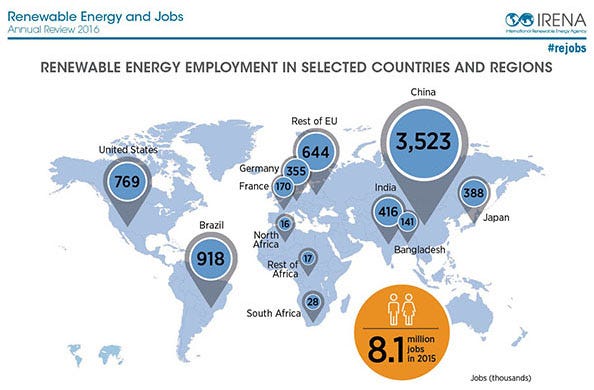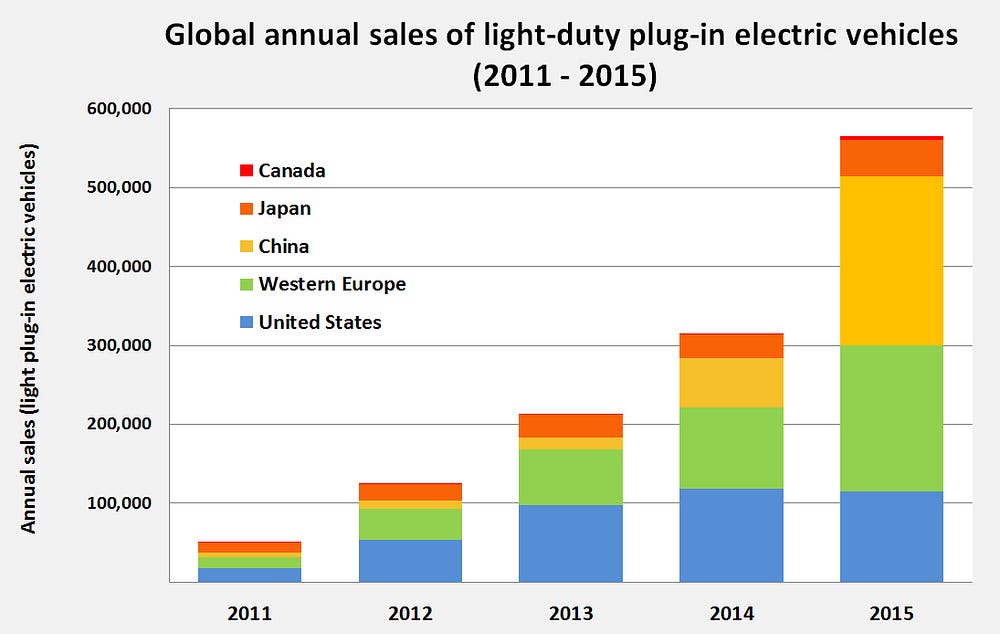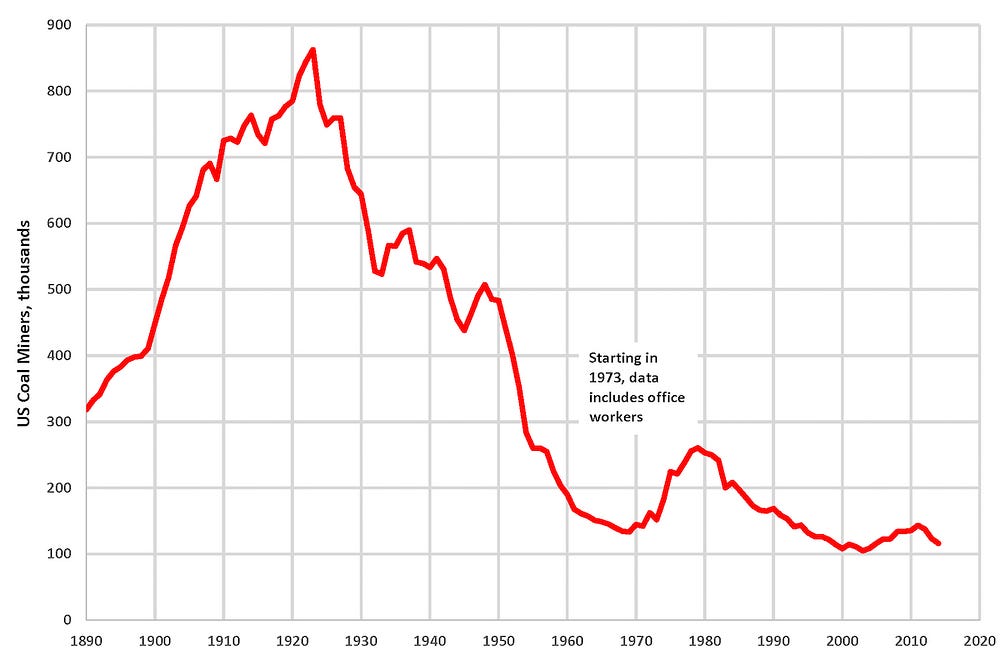Anyway, back to the thread main topic.
[QUOTE
Trump to cede millions of high-wage jobs to China
Beijing will create 13 million jobs by 2020, investing $360 billion in clean energy, while Trump vows to abandon the sector.
Renewable energy jobs in select countries (excluding large hydropower). CREDIT:
China is preparing to go big on the only major new source of sustainable high-wage employment in the coming decades.
Beijing’s newest 5-year energy
invests a stunning 2.5 trillion yuan ($360 billion) in renewable generation by 2020. Of that, $144 billion will go to solar, about $100 billion to wind, $70 billion to hydropower, and the rest to sources like tidal and geothermal power.
The Chinese National Energy Administration said in a
the resulting “employment will be more than 13 million people.”
China is already doing way better than the U.S. in this regard, and President-elect Trump’s commitment to opposing clean energy will not make things any better. As the International Renewable Energy Agency (IRENA)
, China already has over 40 percent of all jobs in renewables, globally, while the U.S. has under 10 percent (see chart above).
We know clean energy jobs are the only major new source of sustainable high-wage employment in the coming decades for several reasons.
First, the rapid price drops in the core technologies have made clean energy a
. Second, the nations of the world unanimously committed in Paris to do what it takes to avoid catastrophic warming. That means running the entire world on carbon-free power by the century’s end.
A recent study
a “tenfold jump” in clean energy technologies is needed to meet global emissions targets. That’s a $50 trillion (or
) commitment in the coming decades. So we are talking tens of millions of new jobs, something
.
No wonder China decided to be the leader in both manufacturing and deployment of solar and wind power. And no wonder they have made an equally large bet on batteries and electric vehicles (EVs), which is how they blew past both the U.S. and Europe in total sales back in 2015.
CREDIT: Argonne National Laboratory (via Wikipedia)
China
electric car sales in 2016, and the Beijing is aiming at a 1,000 percent sales increase by 2025 — some 3 million new EVs a year. To achieve that, “
subsidies that can total 60 percent of an electric-car’s sticker price,” Bloomberg News reported.
Third, the fossil fuel industry simply has no sustainable growth model. Advanced batteries could “tip the oil market from growth to contraction earlier than anticipated,” credit rating agency Fitch concluded
. Bloomberg New Energy Finance
investors to expect the “big crash” in oil by 2028 — and as early as 2023.
Yet, despite the fact that President-elect Trump promised to bring back coal jobs, that goal is quite simply
, even if he succeeds in temporarily slowing the explosive growth of clean energy.
The “real war” on coal workers was waged “by the coal industry itself,” Nobel prize-winning economist Paul Krugman explained
. “Strip mines and machinery in general have allowed us to produce more coal with very few miners.”
Even Senate Majority Leader Mitch McConnell (R-KY)
after the election that it’s unlikely substantial coal jobs will be coming back.
Yet while China understands there’s a relatively short window of time to achieve global leadership in the core carbon-free technologies, Trump promised to kill U.S. climate action while
.
So while Trump might extend a short-term lifeline to the dirty fuels of the past, millions and millions of the jobs of the future will apparently be captured by more forward-looking countries … like China.
][/QUOTE]




